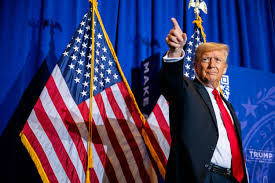If we've come to think of President Zuma as a 'tyrant' breaking the law and undermining the constitution, we need to see that actually he is not - not, that is, until the law brings him to book.
President Zuma has simply been using every legal loophole to duck out of (among a number of other scandals) the scandal of Nkandla, a private residence the Public Protector found had been enhanced beyond any legitimate security purpose at the expense of SA's taxpayers. The law in the form of the Constitutional Court finally caught up with the president. But it has taken a very great deal of time and trouble when democracy has a more direct way: in the end, the only way.
President Zuma has simply been using every legal loophole to duck out of (among a number of other scandals) the scandal of Nkandla, a private residence the Public Protector found had been enhanced beyond any legitimate security purpose at the expense of SA's taxpayers. The law in the form of the Constitutional Court finally caught up with the president. But it has taken a very great deal of time and trouble when democracy has a more direct way: in the end, the only way.
We must distinguish between the law and politics. We should remember Nkandla is the sort of abuse many African leaders, including the president of SA's next door neighbour, President Mugabe of Zimbabwe, have been accused of for years. And we should remember the Commander-in-Chief of the EFF Julius Malema has long vaunted President Mugabe as the African leader to follow.
The problem of parliament being disrupted, therefore, seems unlikely to be solved by Mr Malema and his fellow rowdies acting on democratic principle. Democratic principle, one can safely say, has been lacking on all sides in the Nkandla affair. Nor need we trust Mr Malema when he or his publicity machine suggests he is single-handedly putting everything to rights for us all. Distracted by the repetitive antics, we have lost sight of the fact that President Zuma never responded to the EFF breaking the rules. He has been snared by the rules being followed.
There is, then, the legitimate political alternative to consider. The solution to an evasive president and an opposition that makes a show of its contempt for the rules is for the people of SA to exercise their individual and collective authority. This involves each pondering how the parties governing, or presuming to govern, are really performing, not as they say they are. Are they dealing with practical problems and being honest with the voters? Is there a better way, even if it is only a change in who runs the show? Isn't it time to think very seriously about which party to vote for? Elections are round the corner.
There is, then, the legitimate political alternative to consider. The solution to an evasive president and an opposition that makes a show of its contempt for the rules is for the people of SA to exercise their individual and collective authority. This involves each pondering how the parties governing, or presuming to govern, are really performing, not as they say they are. Are they dealing with practical problems and being honest with the voters? Is there a better way, even if it is only a change in who runs the show? Isn't it time to think very seriously about which party to vote for? Elections are round the corner.
The people of South Africa may of course choose to vote for the ANC as usual, or for the EFF in larger numbers than last time: that is democracy. But everyone should remember the ANC that elected Jacob Zuma also finds itself bound by legal authority now. By rules.
The only rules the EFF appear to be willing to follow are their own.
The only rules the EFF appear to be willing to follow are their own.

